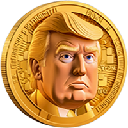 |
|
 |
|
 |
|
 |
|
 |
|
 |
|
 |
|
 |
|
 |
|
 |
|
 |
|
 |
|
 |
|
 |
|
 |
|
Cryptocurrency News Articles
In the Wake of President Trump's Unexpected Executive Order This Monday—Which Hinted at Establishing a U.S. Sovereign Wealth Fund and Incorporating Bitcoin Into the National Strategic Reserve—It Is Crucial to Pause and Weigh the Tradeoffs Involved.
Feb 07, 2025 at 04:35 am
While accumulating Bitcoin might seem like an obvious strategy, a more ambitious—and ultimately more effective—plan calls for overhauling the nation's financial architecture to unlock the potential of open networks.

President Trump’s executive order this Monday hinted at establishing a U.S. sovereign wealth fund and incorporating Bitcoin into the national strategic reserve. While accumulating Bitcoin might seem like an obvious strategy, a more ambitious—and ultimately more effective—plan calls for overhauling the nation’s financial architecture to unlock the potential of open networks.
The United States occupies a unique position in global finance by issuing the world’s reserve currency—a status often referred to as the “exorbitant privilege.” But it’s more than a label economists use: it fundamentally reflects the global trust in American governance, economic resilience, and the enduring safety of the dollar as a store of value.
A novelty Bitcoin token is photographed on a US Dollar bank note, on January 4, 2025. (Photo ... [+] Illustration by Anna Barclay/Getty Images)
The biggest risk posed by a Bitcoin reserve
Proponents of a U.S. Bitcoin reserve argue that Bitcoin’s status as “digital gold”—decentralized and without a single point of failure—positions it as a neutral global asset, detached from any one nation’s monetary policy. But would accumulating Bitcoin truly secure U.S. financial leadership?
Unlikely. Strategic reserves are meant to ensure stability and provide immediate access during a crisis. Countries store dollars or oil because they need them to repay debts, settle cross-border obligations, and keep essential systems running when supply chains falter. For all its promise, Bitcoin doesn’t meet these near-term needs.
But there’s a bigger risk: if America began amassing Bitcoin on a large scale, it might be seen as a hedge against the dollar itself—raising alarms and giving rivals like China or Russia an opening to claim that the U.S. no longer trusts its own currency.
Bitcoin’s long-term trajectory could be bright. It could grow into a universal settlement layer for nations wary of each other’s financial rails. But that transition is still unfolding. Today, the more critical step is building the infrastructure to let Bitcoin and other cryptocurrencies evolve from speculative assets into a key component of global finance. Acquiring a large stash now will drive gains for early adopters and fuel speculation, but it offers minimal strategic advantage.
Samsung’s Android Update—Bad News For Galaxy S25, S24 Owners
Deadline For Trump’s Federal Buyout Offer Extended By Court—As Over 40,000 Staff Agree To Leave: Here’s What To Know
Apple Quickly Releases New iPhone Update For 3 Phones Only
Raising the stakes with a U.S. dollar platform strategy
A far more powerful move than simply buying Bitcoin is to shape its integration into the U.S. financial system. Think of the early internet: the biggest winners weren’t those who just hoarded domain names; they were the ones who built on top of open protocols, becoming the backbone of a new digital economy.
1. Become a global Bitcoin hub
Rather than treating Bitcoin solely as an asset, recognize it as an open, permissionless network for money movement. Even countries that shun the dollar might end up using Bitcoin’s neutral ledger. By building robust Bitcoin infrastructure—including secure custody solutions, regulated exchanges, and efficient on- and off-ramps—the U.S. can attract significant economic activity and innovation. This is an opportunity to export American regulatory and compliance frameworks, technological expertise, and financial best practices as the global financial stack evolves.
Bitcoin might be the first cryptocurrency to capture financial institutions’ attention, but it won’t be the last. As decentralized finance (DeFi) evolves, the true opportunity lies in becoming the digital capital of that emerging ecosystem.
The logo of the stablecoin USD Coin (USDC). (Photo by Silas Stein/picture alliance via Getty Images)
2. Drive adoption of USD stablecoins
Dollar-pegged stablecoins extend the reach of the U.S. dollar by modernizing cross-border payments and making it easier for people worldwide to hold, send, and spend in USD. Their widespread adoption hinges on proper regulation—ensuring transparency, robust backing, and consumer protections. Managed effectively, stablecoins can reinforce dollar dominance by turning the dollar into the digital currency of choice for innovative financial services built on open networks.
While dollarization may be unwelcome and even hinder USD stablecoin adoption in some regions, that’s exactly where Bitcoin can thrive—as a robust complement and bridge between competing financial systems in a multipolar world.
3. Empower U.S. innovation and experimentation
The U.S. didn’t scale the internet on its own—it laid the groundwork that allowed private innovation to flourish. Tech giants emerged by building on top of open protocols within a supportive regulatory environment. Today, a similar strategy could enable U.S. startups and established financial institutions to develop innovative cryptocurrency and stablecoin-based financial services, thereby broadening the dollar’s influence rather than limiting it. A balanced approach—
Disclaimer:info@kdj.com
The information provided is not trading advice. kdj.com does not assume any responsibility for any investments made based on the information provided in this article. Cryptocurrencies are highly volatile and it is highly recommended that you invest with caution after thorough research!
If you believe that the content used on this website infringes your copyright, please contact us immediately (info@kdj.com) and we will delete it promptly.
-

- PlutoChain ($PLUTO) – A New Layer-2 Solution That Could Redefine Bitcoin with 2-Second Transactions, Lower Fees, and Seamless Ethereum Compatibility
- Feb 07, 2025 at 10:06 am
- XRP and Ethereum have always been a trending topic and coins that are always in rotation when it comes to a trader's next investment.
-

-

- RCO Finance (RCOF) Might Become the Best Crypto Investment of 2025, Here's Why
- Feb 07, 2025 at 09:46 am
- Cardano (ADA) has fallen sharply, echoing bearish sentiments in the crypto market. Its double-digit drop over the past few days has now pushed investors to RCO Finance, a new AI-backed altcoin project that has raised over $12 million since the launch of its presale.
-

-

-

- Memecoins: The rise of the joke cryptocurrencies that are luring young Singaporean investors
- Feb 07, 2025 at 09:46 am
- Memecoins are cryptocurrencies that often begin with a joke or a viral meme. Like many other cryptocurrencies, memecoins have no obvious use and are not backed by real assets, so they are simply valued based on what people are willing to pay for them.
-

- FXGuys ($FXG): The New DeFi Contender That Could Outshine Cardano (ADA) and Hedera (HBAR)
- Feb 07, 2025 at 09:46 am
- Though Cardano (ADA) and Hedera (HBAR) have been at the forefront of DeFi with their unique blockchain adoption strategies, experts see FXGuys ($FXG) emerging as the stronger contender in the upcoming months.
-

- XRP Price Analysis: Death Cross Looms, Signaling Further Weakness
- Feb 07, 2025 at 09:31 am
- XRP's price action has taken a sharp downturn in the past 24 hours to extend its seven-day losses. Notably, this downturn has seen the asset slipping below a critical support level at $2.50 after weeks of intense work to break above it.
-

- How PlutoChain ($PLUTO) Could Make Bitcoin Faster, Cheaper, and More Versatile Than Ever with Layer-2 Scaling, Lower Fees, and Cross-Chain Compatibility
- Feb 07, 2025 at 09:26 am
- Bitcoin remains the most recognized cryptocurrency, but slow transactions, high fees, and network congestion still limit its practicality.





























































